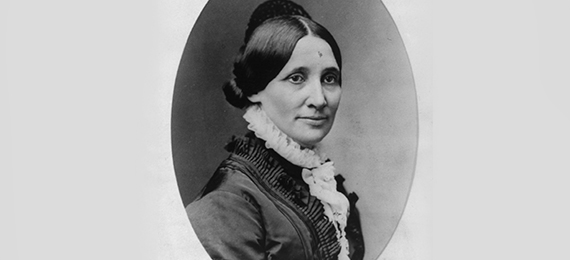
U.S. president banned alcohol at the white house
Lucy Webb Hayes, the wife of President Rutherford B Hayes, made one of the most dramatic changes in the history of White House entertainment. She banned all alcoholic beverages from the building. The decision earned her praise in some quarters, scorn in others, and also earned her a long-lasting nickname like “Lemonade Lucy.” For better or worse, this story has become an important part of Mrs. Hayes’ legacy.
Lucy Ware Webb Hayes was the wife of the 19th President of the United States, Rutherford B. Hayes (1877-1881). She was born and raised in the state of Ohio. Lucy was also a well-educated young woman in the mid-nineteenth century, graduating at the age of 18 from the Wesleyan Female College in Cincinnati.
Her father died when she was only two years old. After her father died, her grandfather, Isaac Cook, became a major influence in her life. Cook had been a lifelong supporter of the temperance movement, which preached the evils of alcohol and the morality of abstaining from it, and he influenced young Lucy’s views. She became a vehement opponent of all forms of alcohol.
When Was Alcohol Banned in the White House?
- A. 1933
- B. 1934
- C. 1935
- D. 1936
She married Rutherford B. Hayes, a promising young lawyer from Cincinnati, several years later. Lucy’s views on alcohol consumption were well known by the time her husband became president, and Americans on both sides of the temperance debate were watching to see if the beverages served at the White House would reflect the first lady’s views. The wine flowed freely during the Hayes administration’s first major social event, a dinner in honor of Grand Duke Alexis of Russia.
This decision drew more attention than they had anticipated. Mrs. Hayes was uncomfortable with continuing to serve alcohol, and while the president did not mind the occasional drink, he saw political opportunities in solidifying temperance advocates’ support. They declared that no alcohol of any kind would be served in the White House from then on.
Because the temperance movement as a whole emphasized how women could set a moral example for their families, it made sense for the first lady to serve as a model for the entire country. Temperance organizations, such as the Women’s Christian Temperance Union (WCTU), celebrated Mrs. Hayes’s pronouncement, which the public attributed entirely to her, and embraced her as a symbol for their cause. The WCTU’s president, Frances Willard, praised the “nerve and steadfastness of purpose” required to carry out the White House alcohol ban.
She was affectionately known as “Mother Lucy”, “Lemonade Lucy” and “Pro Temperance First Lady” for caring for wounded infantrymen in her husband’s command during the Civil War, as well as for her staunch support of the temperance movement.